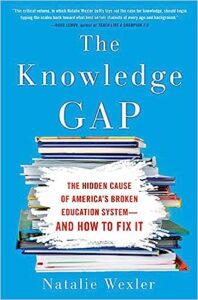Are our students critical?
Willy Renandya, 27 August 2023
When asked if our students are critical today (or more critical than students in the past), many teachers that I have met would say:
Some yes, but the majority can do better.
This of course is rather surprising given the fact that critical thinking is one of the most important goals in education and that we’ve been teaching it either as a stand-alone course or integrate it across the curriculum.
If indeed it is the case that we have not been successful in teaching critical thinking, what then seems to be the problem?
I outline below some points that I feel are worth exploring:
- We haven’t done a good job teaching critical thinking. Perhaps we don’t know much about what critical thinking is, so familiarizing ourselves with the nature of critical thinking and how best to approach it in diverse learning contexts would be an excellent first step.
- Perhaps we’ve been focusing too much on teaching critical thinking skills (e.g., inferencing skills, synthesizing skills, etc), believing that once students have acquired these skills, they can transfer these in other contexts. This however is not supported by research.
- Years of research tell us that critical thinking skills are not transferable. Critical thinking is domain-specific. A chess grandmaster is super critical when playing chess (because he’s got deep and extensive knowledge about chess and years of experience playing chess), but he may not be so critical (or not all) when he tries to solve a simple math problem.
- Our students are just not smart enough to be critical thinkers. They belong to the Generation Z who who are used to processing information superficially and at the speed of light. Critical thinking requires slow and deep thinking.
- We, teachers, are not critical thinkers. We talk the talk, but rarely walk the talk because we don’t have it in us in the first place.
Experts have offered possible explanations as to why critical thinking is HARD TO TEACH. For me, one of the most plausible explanations is offered by this book by Natalie Wexler: Knowledge Gap.

If you are looking for a more academic discussion on why having a strong knowledge base is a sine qua non for critical thinking, you might want to refer to Daniel Willingham’s work “Critical thinking: Why it is so hard to teach“.
More reading

